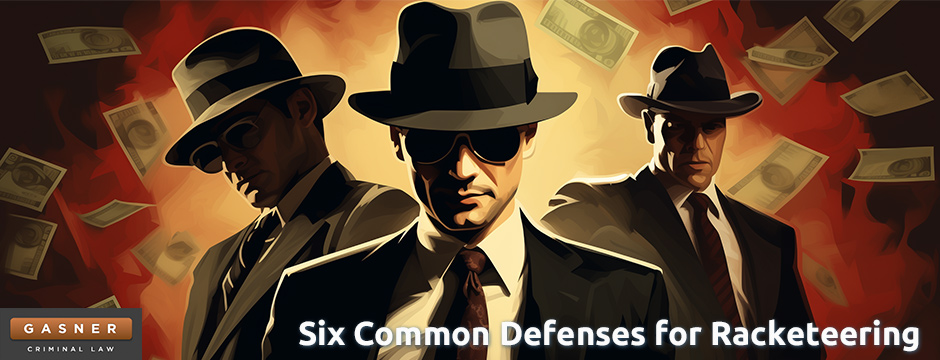
Possible Defenses for Racketeering
In San Francisco, CA, facing criminal racketeering charges presents a significant legal challenge. Racketeering is often associated with organized crime and involves operating an illegal business or scheme (commonly known as a "racket") for profit. The Racketeer Influenced and Corrupt Organizations Act (RICO) is a federal law that provides severe penalties for those convicted of racketeering activities. This article aims to explore potential defenses that could be employed in San Francisco to combat such charges.
A qualified criminal defense attorney should understand the potential defenses against racketeering criminal charges and determine the best defense strategy.
1. Lack of Evidence
One of the primary defenses against racketeering charges is the lack of sufficient evidence. The prosecution must prove beyond a reasonable doubt that the defendant engaged in racketeering activity. A defense attorney can argue that the evidence presented is insufficient, unreliable, or does not directly link the defendant to the criminal activities in question.
2. Absence of a Pattern
RICO charges require proof of a "pattern of racketeering activity," typically defined as at least two acts of racketeering within a 10-year period. A defense may focus on demonstrating that the alleged acts are isolated incidents and do not constitute a pattern as defined under RICO.
3. Non-Involvement in a Criminal Enterprise
Another defense is disputing the existence of a "criminal enterprise" or the defendant’s involvement in it. The defense can argue that the group in question does not meet the legal definition of a criminal enterprise or that the defendant was not associated with it in a manner that would constitute racketeering.
4. Withdrawal from the Criminal Enterprise
If a defendant can show they withdrew from the criminal enterprise before any racketeering activities occurred, this might serve as a defense. Withdrawal requires proving that the defendant completely and voluntarily abandoned their involvement in the enterprise and made efforts to prevent further criminal activities.
5. Entrapment
Entrapment occurs when law enforcement induces a person to commit a crime they would not have otherwise committed. If the defendant can prove entrapment, this could be a valid defense against racketeering charges.
6. Statute of Limitations
Racketeering charges are subject to a statute of limitations. If the alleged criminal activities occurred outside this time frame, the defendant could use this as a defense to prevent prosecution.
The Complexity of Racketeering Defenses
Facing racketeering charges in San Francisco, CA, can be a daunting experience. However, understanding and effectively utilizing available defenses can significantly impact the outcome. It's crucial for individuals accused of such offenses to seek competent legal counsel experienced in racketeering laws. Remember, each case is unique, and defenses must be tailored to the specific circumstances surrounding the charges.
Gasner Criminal Law stands ready to assist you in your time of need. Adam Gasner will protect your rights by challenging the prosecution's case and striving for the best possible outcome in your situation. Contact us today at 415-782-6000 to schedule a consultation and take the first step toward building a robust defense against allegations of racketeering.
*Disclaimer: This article is intended for informational purposes only and does not constitute legal advice. If you are facing racketeering charges, consult a qualified attorney for guidance.*

